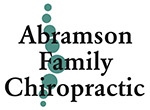Archive for June 2022
Prolonged Sitting at Work Affects the Spine
Assessments of office workers revealed that at the end of an eight-hour workday, participants had experienced a significant reduction in both standing and sitting height, along with an increase in spinal pain. The findings highlight the importance of breaking up prolonged sitting time with frequent breaks to stretch or walk. International Journal of Occupational Safety…
Read MoreDizziness and Chronic Neck Pain
Among a group of 133 patients under treatment for chronic neck pain, 43% reported concurrent dizziness. Additionally, those with both neck pain and dizziness were more likely to experience more intense neck pain and disability, along with lower scores on quality of life assessments. Doctors of chiropractic are skilled in the management of both neck…
Read MoreNeck Pain and Migraines
A systematic review found that migraine headache patients are three times more likely than individuals without a history of headache to have neck pain (77% vs. 23.5%). Past research suggests that addressing cervical spine issues in patients with migraines—with chiropractic care, for example—may reduce headache frequency and intensity. Cephalagia, February 2022 Health Alert: Steroid Medications…
Read MoreSpinal Mobilization & Postural Exercises Reduce Headaches
Among a group of 72 cervicogenic headache patients, researchers observed that a four-week intervention that included posture corrective exercises and spinal mobilization therapy led to significant improvements in headache intensity, neck pain, and neck disability. Furthermore, the patients continued to report such benefits at a follow-up visit four weeks after the conclusion of care. Doctors…
Read MoreMonthly Pain Update – June 2022
Hip Stretching and Core Strengthening for Low Back Pain When it comes to the low back pain patient, it’s common for the muscles that attach to the hip and pelvis (hamstrings, psoas, piriformis, and tensor fasciae latae) to be overly active or tight, while at the same time, the core muscles are deconditioned and weak.…
Read More




